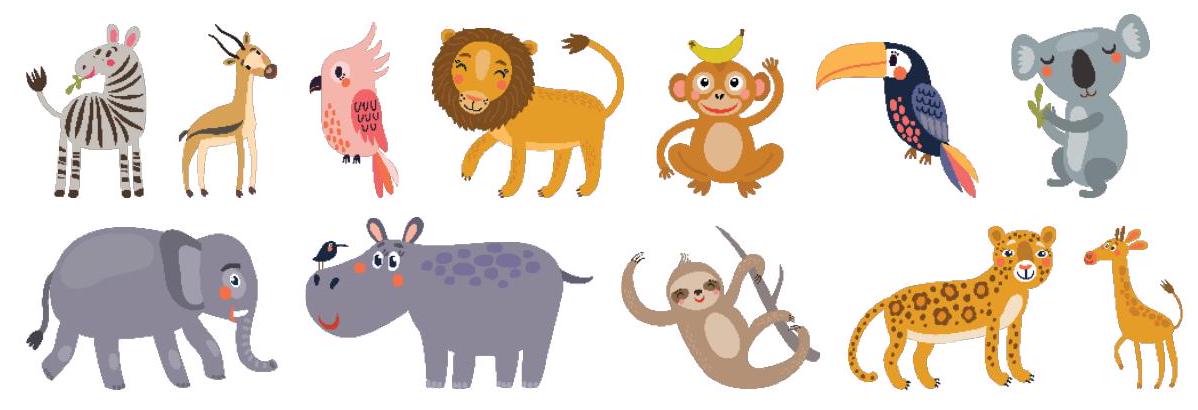Nouns

1.0Definition
A noun is a part of speech that helps us to name anything that we see around us. It can be the name of a person, place, thing, animal, emotion or quality. Often a noun is the name for something we can touch (e.g., 'lion', 'cake', 'computer'), but sometimes a noun names something we cannot touch (e.g., 'bravery', 'smile', 'joy').
Here are some examples of nouns.
Person: soldier, Ayan, cousin, lawyer

Place: house, London, factory, shelter

Objects: bed, flowerpot, candle, chisel, umbrella

Animals: Lion, Rat, Shark, Monkey

Ideas: confusion, kindness, faith, Theory of Relativity, joy

2.0Types of Nouns

Proper Noun
Proper Nouns are words that denote the names of a particular person, place, thing, animal or idea.
Common Noun
A Common Noun refers to persons, places or things that are of the same kind. Common nouns do not identify specific people, places or things but refer to them in a general way.
Collective Noun
Sometimes we use a noun to refer to a large number of similar things or people. Such a word functions as a Collective noun. Examples: We were lucky to spot a 'herd of elephants' bathing in a pond. I can't find a single key; I think, I have lost the entire 'bunch'. In the sentences given above, the noun 'herd' refers to a group of elephants; the noun 'bunch' refers to several keys together.

3.0Quick Tips
- Collective nouns have fixed usage. A particular collective noun goes with a particular group of people or things and they generally cannot be interchanged. Examples: a bunch of keys, a pile of books and an army of ants.
- We cannot change this to a pile of keys, an army of books and a bunch of ants. (Incorrect)
Material Noun
It is the name of substances or materials used for making things. Examples: water, iron, steel, sugar, wood, etc. Bread is made from flour.

Abstract Noun
Abstract nouns represent things that are intangible and cannot be seen or touched. These nouns could be names of a quality (honesty, intelligence, etc.), a state (sickness, poverty, etc.) or a concept (flight, love, etc). Examples: 'Laziness' is one of the worst vices. There is no escaping 'difficulty' in life.
- You can use suffixes to make abstract nouns
There are a few other kinds of nouns too. Some have been discussed below. (a) Countable Abstract Nouns: Appointment, blessing, correction, distraction, effort, fraction, greeting, hope, impulse, joke, loss, mood, notion, order, privilege, etc. Remember, a determiner is necessary before a singular, countable abstract noun. (b) Uncountable Abstract Nouns: Awareness, caution, dearth, elegance, freshness, gusto, health, ignorance, justice, keenness, laziness, meekness, narrowness, poverty, etc. Remember, never use an indefinite article before an uncountable, abstract noun.
4.0Countable and Uncountable Nouns
- Countable Nouns are the nouns that can be counted. These nouns can be used to answer the question, 'how many?'
- Examples: Actor, bucket, crowd, dagger, eagle, friend, galaxy, hotel, igloo, jackal, kettle, lemon, mechanic, needle, orphan, player, queen, robber, stable, tribe, uncle, vest, warden, yak, zebra, etc.
A. How many books have you read? I have read three books.
B. How many boys are there? There are eight boys.
In the above examples, books and boys are countable nouns.
- Uncountable Nouns are the nouns that cannot be counted. These nouns can be used to answer the question, 'How much?'
- Examples: Aluminium, butter, custard, dust, honey, ice, jaggery, kerosene, liquor, potassium, rice, sugar, tea, vinegar, water, etc. Remember, never use an indefinite article before an uncountable noun.
A. How much sugar do you want? I want one teaspoonful sugar.
B. How much water is in the bucket? There is about five litre of water.
In the above examples, 'sugar' and 'water' are uncountable nouns.
- Most uncountable concrete nouns can be quantified by mentioning their portion or by using an appropriate value of measurement. Look at the examples given below (with the uncountable concrete nouns bold) Examples: I bought five hundred grams of 'butter'. Could I have a loaf of 'bread' please? I ate five pieces of 'cake'.
5.0Noun : Number
Nouns can be either singular or plural in number.
- A noun is singular in number when it indicates only one person, object or thing. Examples: a man, a book, a pen, an apple, a chair, etc.
- A noun is plural in number when it points to more than one person or thing. Examples: five men, twenty pens, ten horses, fifteen babies, etc.
Forming Plural Nouns
Look at the following tables closely to learn about how we make plural forms of different nouns.
- Plural forms of nouns ending in 's', 'ss', 'ch', 'sh', 'dge' and 'x' are made by adding 's' or 'es' to the singular form of each noun.
- Plural forms of nouns ending in ' f ' and 'fe' are made plural by adding '-ves' in place of ' f ' or 'fe'.
However, there are some words which end in ' f ' but do not follow the rule mentioned above. These words are made plural simply by adding 's'. The following is a list of such words.
- Plural forms of nouns ending in 'o'. Usually take 'es' at the end of the singular form to form their plural forms.
However the following words, though ending in ' o ', do not follow the rule mentioned above. They take 's' at the end and not 'es'.
- If the last letter of a noun is ' ' and there is a consonant before the last letter, the last letter ' ' is changed into 'ies' in the plural form.
6.0Irregular Plural Forms
Some nouns do not follow the usual rules for forming their plurals. Sometimes these words change their spelling in a different way or do not change at all to make plurals.
- Some nouns add 'en' or 'ren' to form their plural. Child (singular)—Children (plural)
- Some other nouns change their middle vowels to form their plural forms.
Foot (singular) — Feet (plural) Look at the following table for more such irregular plural forms.
- The plural ending 's' is added to the principal word in compound nouns. sister-in-law (singular) —sisters-in-law (plural) Look at the following table for more words like the above.
- Some nouns have the same singular and plural forms. Look at the following table for some examples.
- Nouns that are always plural. The names of objects that have two essential parts are always used in the plural. Such words cannot be used in their singular form. Therefore, we need to use plural verbs with them. Following is the list of some of those words.
- Some nouns ending in either 's' or 'ics' are usually singular uncountable nouns and have no plural forms. Linguistics is my favourite subject. Here, the word 'linguistics', though it appears to be in its plural form is actually a singular uncountable noun. Therefore, it has no plural form. The verbs that go with these words are always singular. The following list gives you some more words of this kind.
- Abstract nouns, such as admiration, affection, hatred, love and material nouns, such as iron, sugar, silk, wood are not countable nouns. Therefore, they do not have any plural form.
- Some collective nouns such as people, police, cavalry, gentry etc. and cattle look like singular nouns though they denote a plural concept. Therefore, they take plural verbs. Nouns of Foreign Origin Nouns ending in 'us' The plural is formed by dropping the -us from the singular and then adding the suffix 'i' to it.
Nouns ending in 'is' The plural is formed by changing the ending form 'is' to 'es'.
Nouns ending in 'on' The plural is formed by dropping the -on from the singular and then adding the suffix ' a '.
| Criterion | Criteria | Phenomenon | Phenomena |
Nouns ending in 'um' The plural is formed by dropping the -um from the singular and then adding the suffix 'a'.
- Only countable nouns have plural forms. Singular countable nouns can be made plural usually by adding the suffix -s or -es. Nouns that are made plural by adding -s or -es are called Regular Nouns.
Examples:
- table - tables
- glass - glasses
Masculine and Feminine
Gender is the quality of a noun or a pronoun that classifies it as masculine, feminine, common or neuter gender. My sister, Soma and Mr Bukhari's son, Sushil are friends. They went to the same school. In the above lines:
- The word 'sister' tells us that the person being spoken of is a woman.
- The word 'son' tells us that the person being spoken of is a man.
- The word 'friends' tells us that the persons being spoken of can either be male or female.
- The word 'school' tells us that the noun is an inanimate thing and is neither male nor female.
Thus, by merely looking at the words we know whether someone is a 'male' or 'female' OR it is a 'non-living thing' OR it is a 'class name that can refer to both male and female'. The quality that helps us to identify the above in nouns is called gender. There are four genders.
Formation of the Feminine
By using a completely different word.
By the formation of compound words, i.e., by adding another word to the feminine noun. washer + man = washerman (masculine) washer + woman = washerwoman (feminine)
Some words have a slightly different form than those mentioned earlier for their feminine genders.
7.0Do You Remember ?
- People often think about their country as 'motherland'; so writers sometimes refer to countries as feminine.
Example: India has always been proud of her brave daughters and sons.
- Writers quite often refer to ships as feminine.
Example: The Titanic sank after she hit a massive block of submerged ice. Common gender refers to either male or female. Look at the list of words denoting common gender.
Related Articles:-
Join ALLEN!
(Session 2026 - 27)